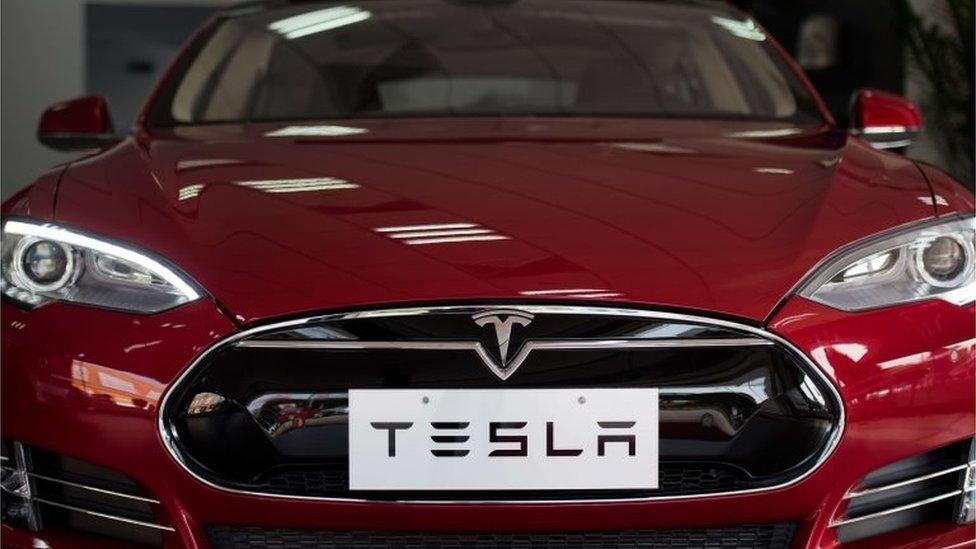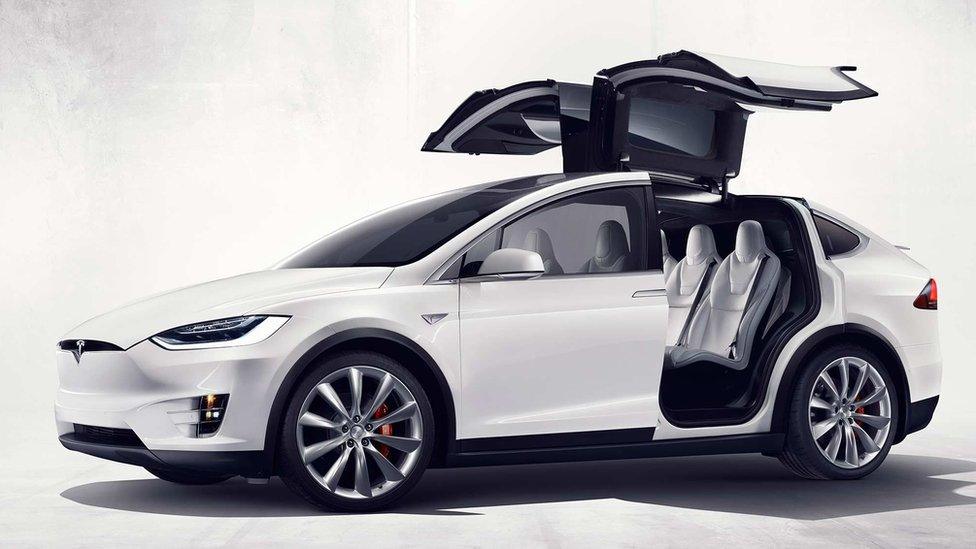Tesla Autopilot needs rethink urges US consumer group
- Published

Tesla's electric cars have been praised, but the firm has repeatedly missed its production goals
A consumer rights group in the US has urged Tesla to disable the automatic steering function on its Autopilot system.
It follows at least two crashes, one fatal, in which the system was active.
Consumer Reports accused Tesla of an "aggressive rollout of self-driving technology".
Tesla described it as "well-meaning advice", adding: "We make our decisions on the basis of real-world data."
In a statement, the firm said: "Tesla is constantly introducing enhancements proven over millions of miles of internal testing to ensure that drivers supported by Autopilot remain safer than those operating without assistance.
"We will continue to develop, validate, and release those enhancements as the technology grows."
It likened the Autopilot function to the systems that pilots use "when conditions are clear".
"The driver is still responsible for, and ultimately in control of the car. This is enforced with onboard monitoring and alerts."
The firm has been under intense scrutiny since a fatal crash in Florida in May, which saw a Tesla vehicle driven by 40-year-old Joshua Brown collide with a lorry.
The firm later acknowledged that the car was in autopilot mode at the time of the collision, claiming the system failed to detect the other vehicle because it could not distinguish between the white side of the tractor and the "brightly lit sky".
Guinea pigs
The National Highway Traffic Administration, which is investigating that and two other Tesla crashes, has written to the firm requesting detailed information about Autopilot.
"In the long run, advanced active safety technologies in vehicles could make our roads safer," said Laura MacCleery, vice-president of consumer policy at Consumer Reports.
"But today, we're deeply concerned that consumers are being sold a pile of promises about unproven technology. Autopilot can't actually drive the car, yet it allows consumers to have their hands off the steering wheel for minutes at a time. Tesla should disable automatic steering in its cars until it updates the program to verify that the driver's hands are on the wheel."
In a report on its website, external entitled, Tesla Autopilot: Too much autonomy, too soon, it accused Tesla of confusing marketing.
"These two messages - your vehicle can drive itself, but you may need to take over the controls at a moment's notice - create potential for driver confusion," it wrote.
Ms MacCleery said that consumers "should never be guinea pigs for vehicle safety 'beta' programs".
She called on regulators to step up their oversight of cars with such features.
- Published13 July 2016

- Published1 July 2016